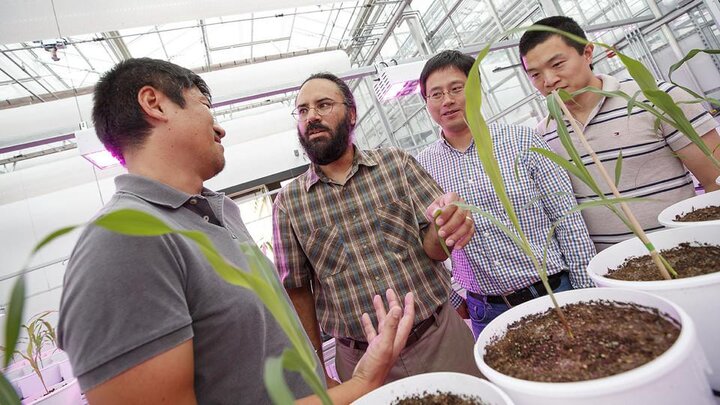University leads research into heat-tolerant crops

Lincoln, Neb. — Harkamal Walia, associate professor of agronomy and horticulture at the University of Nebraska-Lincoln, has been awarded a $5.78 million National Science Foundation grant to explore the affects of high nighttime temperatures on wheat and rice.
The stress of high nighttime temperatures can lead to severe losses in the yield and quality of crops. These losses are particularly high for wheat and rice, two major cereal crops worldwide. During the four-year project, Walia's team will investigate genes and genetic variants in wheat and rice to identify genetic markers and physiological characteristics tied to heat tolerance.
"The effect of high daytime temperatures on crop resilience has been studied, but this project will give us the opportunity to study the impact of high nighttime temperatures," said Walia, who received the award from the NSF's Experimental Program to Stimulate Competitive Research, or EPSCoR. "Models suggest a greater widespread increase in nighttime temperatures than in daytime temperatures, so we need to develop rice and wheat resilient to these conditions."
Walia will lead a multidisciplinary team of Nebraska researchers, including Gota Morota, assistant professor of animal science; Toshihiro Obata, assistant professor of biochemistry; Hongfeng Yu, assistant professor of computer science and engineering; Chi Zhang, associate professor of biological sciences; and Qi Zhang, assistant professor of statistics. The team will also collaborate with researchers from Arkansas State University and Kansas State University.
The team will use a sophisticated image-based phenotyping system that takes high-resolution images of the plants as they endure simulated nighttime conditions. Software processes the images, detecting daily differences among the varieties that are not visible to the human eye. Matching slight variations with differences in each plant's genetic makeup will allow the team to identify the genes responsible for heat tolerance.
"We're hoping to gain a better physiological and genetic understanding of the heat stress responses," Walia said. "This knowledge will drive the development of crops that are more resilient to higher temperatures in terms of yield and quality."
Rice is one of the most important crops for global food security. According to Walia, the crop provides 60 to 65 percent of the daily caloric intake for people who live on less than $1 per day. Wheat is the most widely grown crop in the world and an important commodity for Nebraska. Together, wheat and rice account for more than 50 percent of the world's calorie consumption.
"Genetic improvement of crops for tolerance to increased heat, drought and salinity stress are an important component of an integrated approach toward global food security," said Walia, who will work closely with industry partners to translate discoveries into useful genetic and phenotypic markers. "Nebraska is perfectly poised to lead research of this kind because we've invested in the Greenhouse Innovation Center at Nebraska Innovation Campus."
The Greenhouse Innovation Center is 45,000 square feet of greenhouse and headhouse space. The facility features state-of-the-art computer environmental controls, a high-throughput plant phenotyping system and optimal air circulation. The greenhouses are heated and cooled with sustainable energy.
EPSCoR is designed to fulfill the NSF's mandate of promoting scientific progress nationwide. Twenty-four states and multiple U.S. territories are eligible to compete for funding under EPSCOR's Research Infrastructure Improvement Track 2 investment strategy. RII Track 2 awards build national research strength by initiating collaborations across institutions in two or more EPSCoR jurisdictions and establishing regional partnerships with government, higher education and industry that create lasting improvements in infrastructure and research development.
Harkamal WaliaAssociate Professor
Department of Agronomy and Horticulture
402-472-1162
hwalia2@unl.eduWriter: Haley Apel - IANR Media
